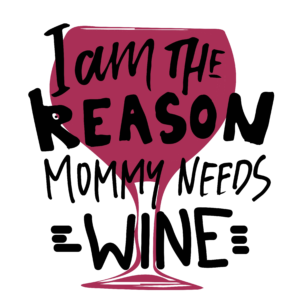Wine Memes and Wine Mom Culture
You’ve seen the t-shirts, the memes, maybe even the koozies for your canned wine. “Mommy needs wine” or “Mom Juice”, harmless humor for moms who need a break from their kids, or at least a little buzz to get through the evening. Wine memes and wine mom culture have become more prevalent than ever before. But how harmless is it really to normalize alcohol as the go-to coping mechanism for the stressors of parenthood?
“It’s just all too easy to slide from the periodic relaxation of a social drink into using that glass of wine to cope. For those of us who are at risk, coping can quickly turn into a real problem, “said Cumberland Heights Chief Clinical Officer Cinde Stewart Freeman.
Stewart-Freeman, an RN, MAC and LADAC II has worked in the field of addiction treatment for 30 years. She is also in long-term recovery.
 “Research shows that alcohol use and misuse among women is increasing. Unfortunately, women who drink also have a higher rate of alcohol related problems than do their male counterparts,” said Stewart-Freeman.
“Research shows that alcohol use and misuse among women is increasing. Unfortunately, women who drink also have a higher rate of alcohol related problems than do their male counterparts,” said Stewart-Freeman.
Alcohol and Stress About Parenting
Pressures within the home are one thing, but now moms are also dealing with a lot of heaviness in their communities. The pandemic has made it difficult to enjoy social outlets we once took for granted. Worries about your own health, your child’s health and whether virtual learning is just around the corner again, all adds to the already chaotic lives parents are living. It’s a lot easier to pop open a bottle of wine sitting on your counter when most of your time is spent at home.
Behind Wine Mom Culture: Guilt and Drinking
“Mom guilt” can also trigger women to turn to the bottle. Being hard on yourself for working too much, being too tired to get on the floor and play or losing your patience with your child because of something else happening in your personal life can all lead to that “mom guilt.” And sometimes to avoid feelings of guilt, we turn to alcohol – wine mom culture strikes again.
“It’s a vicious cycle that can lead to real problems. During group therapy, we hear from women all the time who said they drink to numb feelings of guilt but then end up feeling even more guilty for the drinking and not being present for their kids. Then, the cycle continues,” said Women’s Program Director Melissa Hudgens.
Alcohol Consumption: Tips and Guidelines
Now, if you’re reading this and rolling your eyes thinking, ‘Here we go again- more criticism for the 10-15 minutes of relaxation I get a day where I enjoy my occasional glass of wine,’ we understand that too. And there is nothing wrong with unwinding with a beverage, if you’re paying attention to how much you’re consuming and why you’re drinking.
Stewart-Freeman suggests you take a few minutes (sorry, we know we’re adding another item to your never-ending task list) and ask yourself a few questions.
- Do you have a family history of substance use disorders, anxiety, depression, or other trauma? If you don’t know, do some snooping around. Many of us come from families that have been through huge societal events—everything from the recent pandemic and natural disasters to ongoing social justice issues, loss of jobs and financial issues, immigration, wars, and more. Often, families experience substance use disorders and mental illnesses following these kinds of events. Knowing your family history will help you determine if you’re at risk.
- What about you and your own history? Have you had a traumatic event in your life? More than 61% of the people in the Adverse Childhood Events (ACE) study had experienced at least one such event before age 18. Parental divorce, for example, is an ACE event, as is having a parent with a chronic mental or physical illness, including a substance use disorder. People who have experienced trauma have increased rates of anxiety and depression. This can put people at risk for misusing substances.
- What about your current circumstances? Do you have enough support? Modern families, especially extended families, are often spread out across distances. Two parent working families can also make it hard to find time to make friends. The pandemic scenarios certainly made this worse. Not having enough social support can increase use of alcohol to cope. It’s convenient and available—you can even have it delivered to your door.
Help for Moms Who Drink Wine Every Night
Second, if you are even a little concerned, reach out for more resources—information and support are there for the taking. A great website to start with is www.rethinkingdrinking.niaaa.nih.gov. This website is sponsored by the National Institute of Alcohol Abuse and Alcoholism and walks you through a look at your drinking patterns, giving you tools to try if you want to make a change. Your primary care physician can be another good resource as well.
Learn about your local experts too—like the trained professional staff at Cumberland Heights. We offer a free and confidential assessment with recommendations to help you wherever you are. Check out our website at www.cumberlandheights.org or call us at 1-800-646-2700. If you do decide you are drinking more than you are comfortable with, you are not alone.
About the Author:
Liz Stanislawski is the Director of Marketing & Public Relations at Cumberland Heights. Prior to joining the Cumberland Heights team in 2018, Liz worked 13 years in television news as a reporter, most recently at WSMV-TV here in Nashville.










